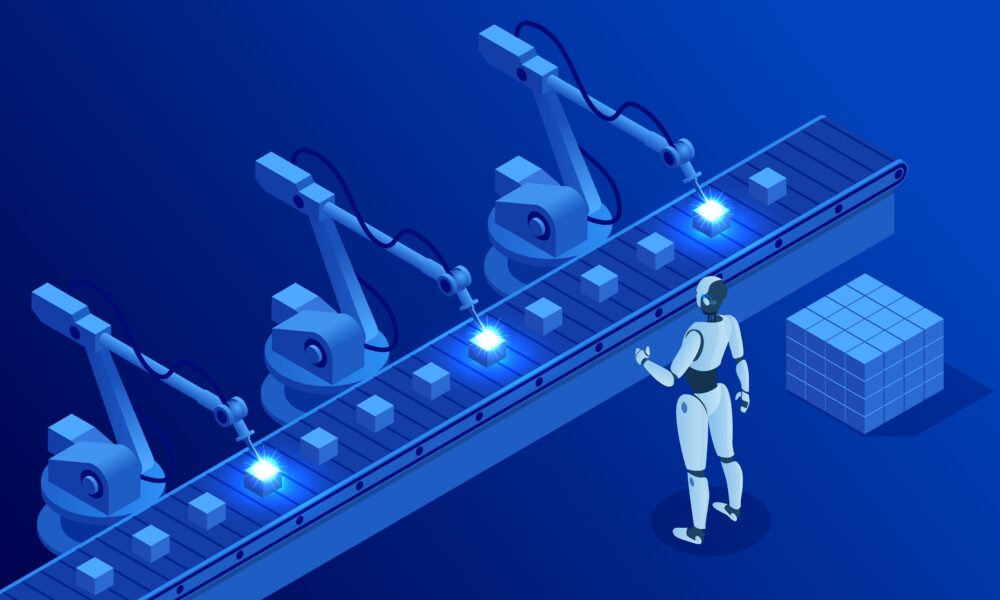The job market is rapidly evolving, with the emergence of new technologies such as artificial intelligence (AI) and automation. While these technologies offer many benefits, such as increased productivity and efficiency, they also raise concerns about the future of work and the potential for job displacement. In this article, we will explore the impact of AI and automation on the job market and discuss strategies for staying competitive in the age of automation.

How AI and Automation are Impacting the Job Market
AI and automation are already having a significant impact on the job market, particularly in industries that involve repetitive and predictable tasks. Jobs that are most at risk of being automated include those in manufacturing, transportation, and logistics, as well as those in administrative and support roles. According to a study by McKinsey Global Institute, up to 800 million jobs could be lost to automation by 2030.
However, not all jobs are at risk of being automated. Jobs that require skills and abilities that are difficult for machines to replicate, such as creativity, problem-solving, and emotional intelligence, are less likely to be replaced by automation. These jobs include those in healthcare, education, the arts, and other creative industries.
The Future of Work: Will Automation Replace Human Workers?
While it is clear that AI and automation will have a significant impact on the job market, it is unlikely that they will completely replace human workers. Rather than eliminating jobs, these technologies are more likely to transform the nature of work and create new opportunities for employment.
One example of this is the emergence of new roles that involve working alongside AI and automation technologies. These roles, known as augmentation roles, require individuals to work with machines and utilize their capabilities to enhance productivity and efficiency. Examples of augmentation roles include data analysts, robot operators, and software developers.

Another example is the development of new technologies that create new job opportunities. For example, the growth of the gig economy, which is fueled by digital platforms and technology, has created new opportunities for freelance and independent workers.
From Automation to Augmentation: The Role of AI in the Job Market
The shift from automation to augmentation is an important trend in the job market, as it highlights the potential for humans and machines to work together to enhance productivity and efficiency.
Augmentation roles require individuals to have a combination of technical and soft skills, including the ability to work with and understand AI and automation technologies. This highlights the need for ongoing education and training to ensure that workers have the skills and knowledge they need to stay competitive in the job market.

The Skills of the Future: How to Stay Competitive in the Age of AI
As the job market continues to evolve, it is becoming increasingly important for individuals to develop new skills that are in demand. This includes technical skills, such as data analytics and machine learning, as well as soft skills, such as problem-solving and communication.
One way to develop these skills is through ongoing education and training. Many organizations are offering training programs and certifications that can help individuals develop the skills they need to work with AI and automation technologies. Additionally, individuals can take advantage of online courses and resources to develop their skills independently.
Another way to stay competitive in the age of AI is to focus on developing skills that are difficult for machines to replicate. These include skills such as creativity, critical thinking, and emotional intelligence, which are highly valued in industries such as healthcare, education, and the arts.
Jobs of the Future: Emerging Roles in the Age of Automation
The emergence of new technologies and the shift towards augmentation roles are creating new opportunities for employment. Some of the emerging roles in the age of automation include:
- Data analysts: Data analysts are responsible for analyzing large volumes of data and using that information to make informed decisions. With the growth of big data, the demand for data analysts is expected to continue to grow.
- Robot operators: Robot operators are responsible for programming and operating robots and other automated systems. This includes monitoring systems, troubleshooting problems, and performing maintenance tasks.
- Software developers: Software developers are responsible for designing and developing software applications. With the growth of AI and automation technologies, the demand for software developers is expected to continue to grow.
- Cybersecurity specialists: Cybersecurity specialists are responsible for protecting computer networks and systems from cyber attacks. With the increasing reliance on technology, the demand for cybersecurity specialists is expected to continue to grow.

Time for Hope
AI and automation are already having a significant impact on the job market, and this impact is expected to continue to grow in the coming years. While some jobs are at risk of being automated, the emergence of new technologies and the shift towards augmentation roles is creating new opportunities for employment. To stay competitive in the age of automation, individuals must focus on developing new skills that are in demand, both technical and soft, and organizations must provide education and training programs to ensure that workers have the skills they need to succeed in the evolving job market.












No Comment! Be the first one.